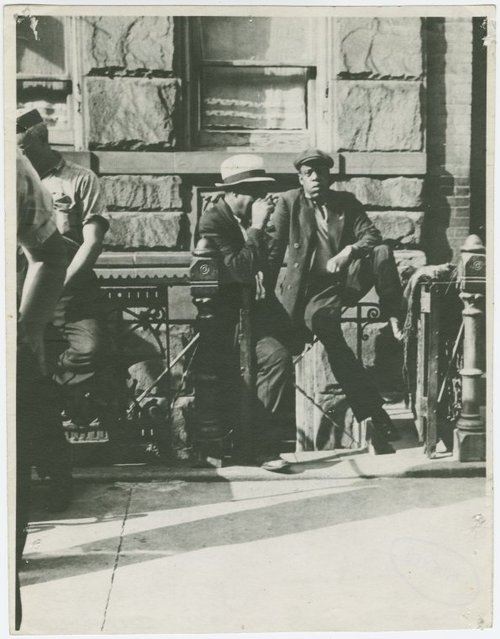How to find time travelers
January 8, 2014

Is rapper Jay-Z a time traveler? — desusnice (Buzz Feed) (credit: The Schomburg Center for Research in Black Culture/New York Public Library)
If there were time travelers among us, how would you find them?
That question occurred to astrophysicist Robert Nemiroff, a professor at Michigan Technological University. So he and his team developed a search strategy based on what they call “prescient knowledge.”
If they could find a mention of something or someone on the Internet before people should have known about it, that could indicate that whoever wrote it had traveled from the future, they reasoned.
They selected search terms relating to two recent phenomena: Pope Francis and Comet ISON, and began looking for references to them before they were known to exist.
They used a variety of search engines, such as Google and Bing, and combed through Facebook and Twitter. In the case of Comet ISON, there were no mentions before it burst on the scene in September 2012. They discovered only one blog post referencing a Pope Francis before Jorge Mario Bergoglio was elected head of the Catholic Church on March 16, but it seemed more accidental that prescient.
They also searched for prescient inquiries submitted to search engines and combed through the Astronomy Picture of the Day site, which Nemiroff co-edits. Still no luck.
For their last effort, the researchers created a post in September 2013 asking readers to email or tweet one of two messages on or before August 2013: “#ICanChangeThePast2” or “#ICannotChangeThePast2.” Alas, their invitation went unanswered. And, they received no insights into the inherent contradictions of time travel.
Abstract of arXiv paper
Time travel has captured the public imagination for much of the past century, but little has been done to actually search for time travelers. Here, three implementations of Internet searches for time travelers are described, all seeking a prescient mention of information not previously available. The first search covered prescient content placed on the Internet, highlighted by a comprehensive search for specific terms in tweets on Twitter. The second search examined prescient inquiries submitted to a search engine, highlighted by a comprehensive search for specific search terms submitted to a popular astronomy web site. The third search involved a request for a direct Internet communication, either by email or tweet, pre-dating to the time of the inquiry. Given practical verifiability concerns, only time travelers from the future were investigated. No time travelers were discovered. Although these negative results do not disprove time travel, given the great reach of the Internet, this search is perhaps the most comprehensive to date.